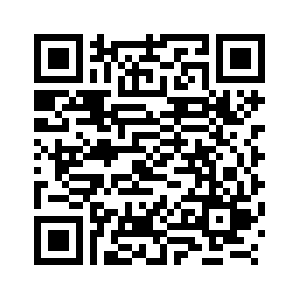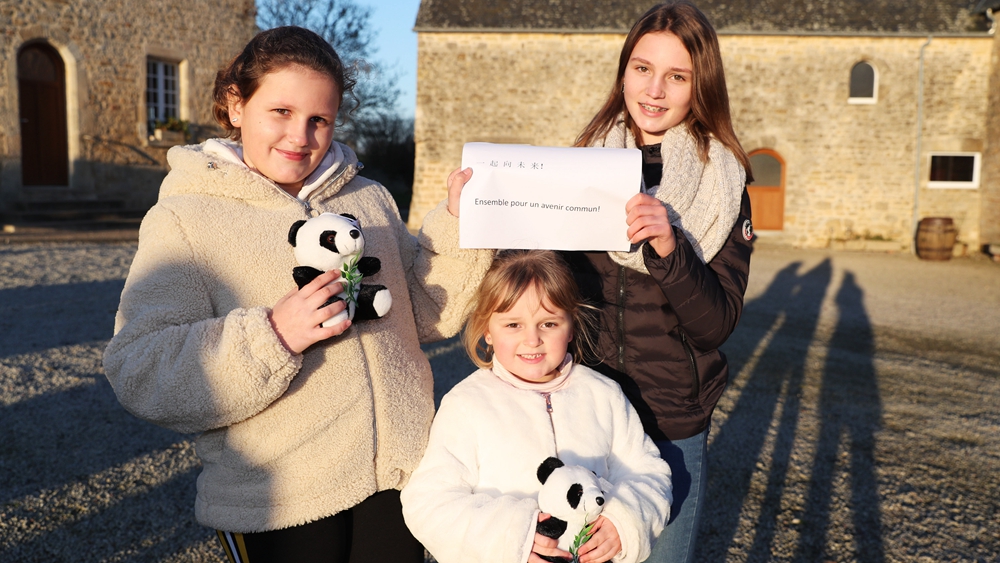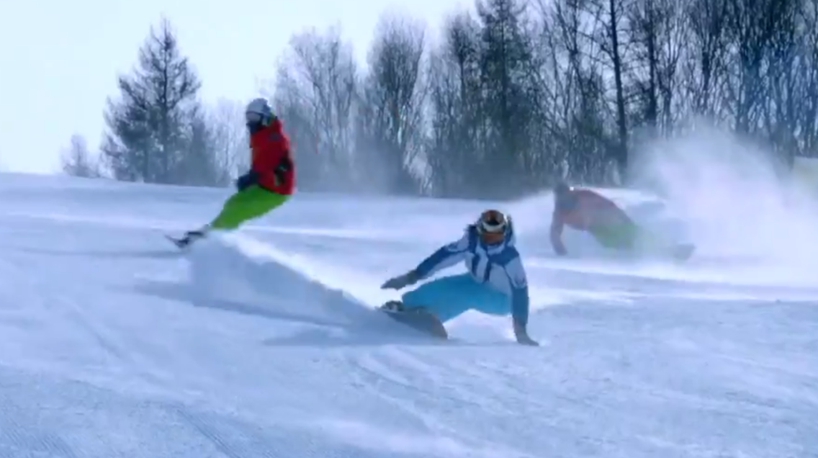Video: On Jan. 23, 2022, thousands of Americans from across the country gathered in the nation's capital for a march against vaccine mandates and other pandemic restrictions, as Americans were frustrated and fatigued by the recent surge in COVID-19 cases and the overall pandemic. (Xinhua)
Even as COVID-19 cases fall in parts of the United States, hospitals remain short-staffed and overloaded with patients, and deaths nationwide are rising.
NEW YORK, Jan. 26 (Xinhua) -- Americans are increasingly skeptical of the federal government's capability to contain the COVID-19 pandemic and unsure of what will become of the ferocious virus and its variants, as the United States has seen worrisome growth in COVID-19 deaths despite declines in cases and hospitalizations.
AMERICANS SPLIT
In a national survey conducted between Jan. 10 and 17, 44 percent of Americans said they were very or somewhat confident in U.S. President Joe Biden's ability to handle the public health impact of the pandemic, a drop of 21 percentage points since March 2021. The public was nearly evenly split on whether they thought the worst of the pandemic was over, with 49 percent responding in the affirmative and 50 percent saying that "the worst is still to come."
"Biden touted his administration's efforts to combat the coronavirus pandemic at a news conference last week to mark the end of his first year in office," reported The Washington Post on Wednesday. For one, the president highlighted that 210 million people had been vaccinated, versus 2 million when he was sworn in last year.
Even as COVID-19 cases fall in parts of the United States, hospitals remain short-staffed and overloaded with patients, and deaths nationwide are rising. The seven-day average for COVID-19 deaths in the United States reached 2,230 on Tuesday, its highest point since late February last year, according to the report.
MANDATE WITHDRAWAL
On Wednesday, the Occupational Safety and Health Administration (OSHA) formally withdraws an emergency private-sector vaccination mandate against COVID-19, after the Supreme Court blocked its implementation, but promised to continue to work on imposing the vaccination requirement through the regular and lengthier rule-making process.
The emergency rule, issued in November, mandated that employers with 100 or more employees require their workers to be vaccinated against COVID-19 or submit weekly testing and wear a mask while indoors. The rule, most of which was set to take effect earlier this month, prompted lawsuit by business groups.
On Jan. 13, the Supreme Court stopped the rule from going into effect while it deliberated over the lawsuit. The rule would have affected roughly 84 million workers. In an unsigned ruling, the court's conservative majority said the administration likely didn't have the power to impose such a requirement on private businesses.
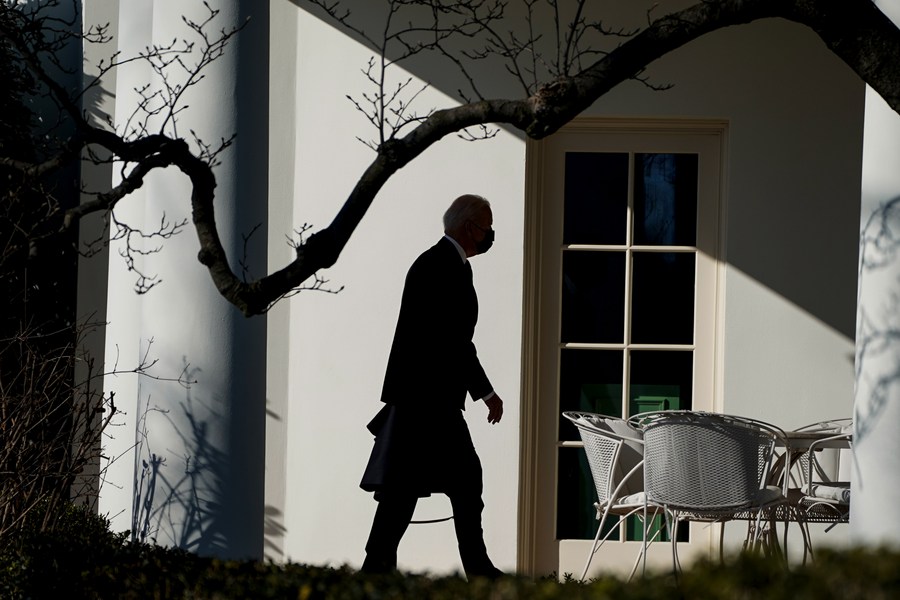
U.S. President Joe Biden arrives at the White House in Washington, D.C., the United States on Jan. 24, 2022. (Photo by Ting Shen/Xinhua)
MORE FUND
The U.S. Department of Health and Human Services (HHS) announced on Tuesday that it would pull an additional 2 billion U.S. dollars from the Provider Relief Fund to aid hospital and other medical service providers as they battle through the latest coronavirus surge.
The 2 billion dollars will go out to more than 7,600 providers across the country after the agency released nearly 9 billion dollars last month. More than 74,000 providers will have gained access to the latest round of funding. This latest round of cash will be delivered as hospital groups demand that Congress provide greater access to the fund and ask for billions of dollars in further support.
"These funds serve as a lifeline for our nation's health care providers, helping them to recruit and retain staff and deliver care to their communities," HHS Secretary Xavier Becerra said in a statement. "And today's announcement is just the latest example of our dedication to ensuring that providers have the resources they need to meet the evolving challenges presented by COVID-19."
SUBVARIANT DANGER
While COVID-19 cases have begun to decline in places where Omicron hit hard late last year, cases of Omicron subvariant BA.2 are on the rise in the Philippines, India, Denmark and South Africa. Cases have been reported in the United States, too, so far in the states of California, New Mexico, Texas and Washington, reported USA Today on Tuesday.
"I don't think it's going to cause the degree of chaos and disruption, morbidity and mortality that BA.1 did," Jacob Lemieux, an infectious disease specialist at Massachusetts General Hospital in Boston, was quote as saying. "I'm cautiously optimistic that we're going to continue to move to a better place and, hopefully, one where each new variant on the horizon isn't news."
The World Health Organization (WHO) has maintained that BA.2 is not a "variant of concern," meaning there is no current evidence to suggest this new subvariant will worsen COVID-19 transmission, illness severity, or efficacy of vaccines and public health efforts like masking and social distancing.
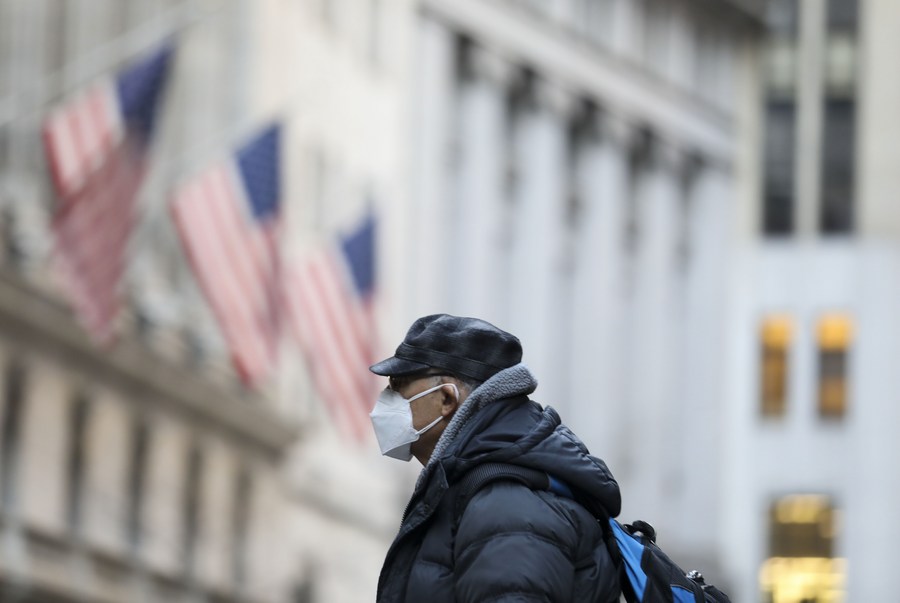
A man wearing a face mask walks on a street in Manhattan of New York, the United States, Jan. 19, 2022. (Xinhua/Wang Ying)
SPECIFIC VACCINE
Biden's chief medical adviser Anthony Fauci told MSNBC on Tuesday that he believes it is "prudent" for Pfizer and BioNTech to develop Omicron variant-specific COVID-19 boosters, even though "we may not need it at all."
"What the company is trying to do is -- if in fact it becomes the low-level, dominant variant that you would want to protect people from breakthrough infections and you might want to boost them -- it makes sense to at least have ready an omicron-specific boost," said the top doctor.
"I think it's prudent to at least prepare for the possibility that this may be a persistent variant that we might have to face. ... For that reason, they're going ahead and doing the experiments you just described," he added, referring to Pfizer-BioNTech's Tuesday announcement that they had begun their human trials of the reformulated vaccine.
VACCINE GAP
The coronavirus wave driven by the highly infectious Omicron variant may be cresting in parts of North America and Europe, but new cases are still climbing in less-vaccinated regions, and WHO leaders warn that the global surge and the world's wide vaccine gap could set the stage for another dangerous variant, reported The New York Times on Wednesday.
"The fact remains that more than three billion people haven't received their first dose yet, so we have a long way to go," Maria Van Kerkhove, WHO COVID-19 technical lead, said in a livestream on Tuesday, noting that about 21 million cases were reported to the agency last week. "There are many countries still in the middle of this Omicron wave."
Only about 62 percent of the world's population has received at least one shot, and "a striking divide between the rich and poor regions of the world remains," said the report, adding that "in low-income countries, only 10 percent of the population has received at least one dose. In high- and upper-middle-income countries, 78 percent have received at least one dose." ■
